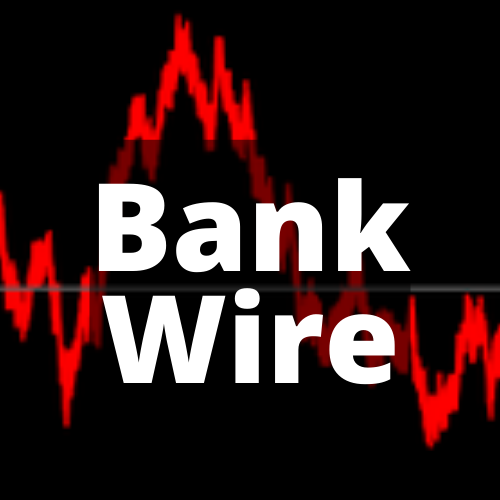
The Central Vigilance Commission and Clean Governance
The Central Vigilance Commission: Upholding Clean Governance in India
Central Vigilance Commission (CVC): Clean governance is the cornerstone of a thriving democracy. At the heart of India’s anti-corruption efforts lies the Central Vigilance Commission (CVC). This authoritative body plays a pivotal role in ensuring transparency, accountability, and integrity within government institutions. In this article, we’ll delve into the vital functions of the Central Vigilance Commission and its profound impact on upholding clean governance in India.
Understanding the Central Vigilance Commission
The Central Vigilance Commission, often referred to as the CVC, is an apex integrity institution in India. Established in 1964, it operates as an autonomous body responsible for overseeing and monitoring vigilance and anti-corruption activities within the government and public sector organizations. The CVC’s primary goal is to ensure a corruption-free and transparent administrative system.
The Key Functions of the CVC
The CVC fulfills its mission by undertaking several crucial functions:
Preventive Vigilance
CVC’s Preventive Vigilance is a proactive approach to minimize corruption and misconduct in India’s public sector. It involves advising government agencies on policies, practices, and systems that reduce the risk of unethical behavior.
By offering guidance and best practices, the Central Vigilance Commission helps prevent corruption before it occurs. This approach promotes transparency, accountability, and integrity, contributing to cleaner governance and fostering a culture of ethical conduct in government organizations.
Central Vigilance Commission (CVC) Investigative Vigilance
The Central Vigilance Commission (CVC) in India conducts impartial investigations into allegations of corruption and misconduct within the public sector. It holds individuals and organizations accountable for their actions by recommending disciplinary measures or legal actions when wrongdoing is confirmed.
This function ensures that corruption is thoroughly examined and addressed, contributing to greater transparency and accountability within government organizations and public sector entities.
Whistleblower Mechanism:
The Central Vigilance Commission (CVC) operates a robust Whistleblower Mechanism in India. This system encourages individuals to report corruption and misconduct without fear of reprisals. It ensures confidentiality and protects the identity of whistleblowers. The CVC investigates the information provided, taking appropriate action against those responsible for wrongdoing. This mechanism plays a crucial role in promoting accountability, transparency, and clean governance within the Indian public sector.
Central Vigilance Commission Advisory Role:
The Central Vigilance Commission (CVC) in India plays a significant advisory role in promoting clean governance. It offers guidance and recommendations to government departments and organizations on ethics, integrity, and best practices.
Through its advisory function, the CVC helps public sector entities establish systems and processes that prevent corruption and unethical conduct. It assists in the development of policies and procedures aimed at enhancing transparency, accountability, and responsible governance.
By sharing its expertise and insights, the CVC contributes to building a culture of integrity and accountability within the public sector, ultimately reinforcing the principles of good governance and responsible administration.
Central Vigilance Commission Punitive Vigilance
Punitive Vigilance, a crucial aspect of the Central Vigilance Commission’s (CVC) role, pertains to taking disciplinary and legal actions against individuals or organizations found guilty of corruption, misconduct, or maladministration. When the CVC’s investigations substantiate wrongdoing, it recommends punitive measures, such as disciplinary actions, suspensions, or legal proceedings, to hold accountable those responsible.
These actions serve as a strong deterrent against corruption and unethical behavior within the public sector, reinforcing the CVC’s commitment to ensuring transparency and integrity in government organizations. In essence, punitive vigilance acts as a means to maintain accountability and uphold ethical standards, ultimately contributing to cleaner and more responsible governance in India.
Promotional Vigilance
Promotional vigilance, a crucial aspect of the Central Vigilance Commission’s (CVC) role, focuses on ensuring that promotions within government organizations are based on merit and integrity rather than nepotism or corruption.
The CVC works to prevent favoritism and corruption in the promotion process by closely monitoring and assessing candidates for their qualifications and performance. It offers guidance to government agencies to establish transparent promotion policies, promoting accountability.
This preventive measure discourages unethical practices and safeguards the integrity of the promotion system, helping maintain trust and fairness in the public sector. The CVC’s efforts in promotional vigilance contribute to a more transparent, accountable, and merit-based promotion process.
Open Free UpStox Demat account/ Trading Account
Open Free Sharekhan Demat Account / Trading Account
Central Vigilance Commission’s Impact on Clean Governance
The Central Vigilance Commission’s impact on clean governance is profound. By serving as a watchdog against corruption and misconduct, the CVC ensures that public resources are used efficiently and ethically. This, in turn, helps in the realization of the government’s policies and programs for the betterment of society.
The CVC’s efforts contribute to:
Accountability: Holding individuals and institutions accountable for their actions promotes trust in government entities and ensures that public resources are used for their intended purposes.
Transparency: Through its investigations and recommendations, the CVC promotes transparency in government operations, reducing the likelihood of secretive and corrupt practices.
Ethical Leadership: The Central Vigilance Commission sets a standard for ethical leadership. This makes it clear that corruption and misconduct will not be tolerated.
Reduced Corruption: The CVC’s vigilance and anti-corruption measures lead to a decrease in corrupt practices, saving government resources and fostering economic growth.
The Central Vigilance Commission continuously adapts to the changing governance landscape. It has implemented modernization initiatives, including digitization and e-governance, to enhance its oversight capabilities in the digital age.
Conclusion
In conclusion, the Central Vigilance Commission is a cornerstone of clean governance in India. Through its multifaceted functions and unwavering commitment to integrity and transparency, the CVC stands as a beacon of hope for a corruption-free and accountable government. Its contributions to clean governance are instrumental in shaping a better and more just future for the nation.
- Top 10 Best Stocks to invest in 2024 for a year
- Top 10 Best Penny Stocks under 20 Rs. in India for 2024
- Stock Market Crash Today; Steps to recover your loss
- Top 10 Stocks to invest in 2024 Under 300 Rs
- Top 10 Stocks To Invest Under 100 Rs
- Top 10 Best Personal Loan Apps for low CIBIL Score
- Top 10 Penny Stocks to invest under Rupee 1
- Top 10 Best Penny Stocks under 10 Rs. in India for 2024
- Top 10 Best Dividend Stocks to invest
- Top 10 Stock broking companies and mobile trading app in India
- Top 5 Life Insurance Companies in India and List of claim settlement ratio, Tips to choose a best life insurance company
- Top 10 Stocks to invest
Read Category-wise posts
Banking | Bank Account | Bank Deposit Schemes | Loans | Bank Cards | Credit Cards | Debit Cards | Search IFSC & MCLR Code | Insurance | Bank Jobs and Exams | Stock Market | GST | EMI Calculator




